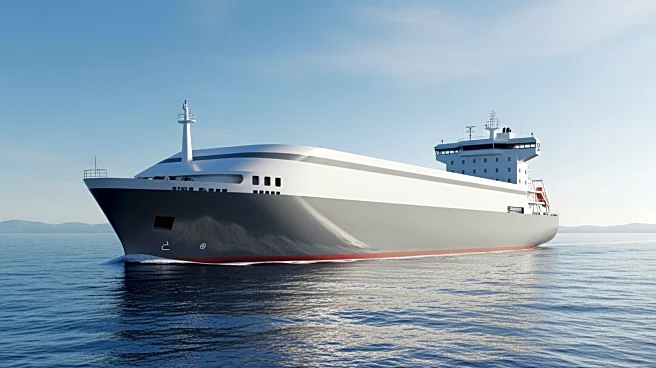What's Happening?
A.P. Moller-Maersk, a leading shipping group, has reported a third-quarter operating result that exceeded expectations, prompting an increase in its full-year profit forecast. The company's underlying
earnings, before interest, taxes, depreciation, and amortization (EBITDA), fell by 44% year-on-year to $2.69 billion, surpassing the $2.58 billion anticipated by analysts. Maersk has adjusted its EBITDA expectations for the year to between $9 and $9.5 billion, up from the previous guidance of $8 to $9.5 billion. CEO Vincent Clerc highlighted the company's solid performance across its business segments and its readiness to adapt to changing market conditions to maintain supply chain stability.
Why It's Important?
Maersk's improved profit forecast reflects its resilience and adaptability in the face of fluctuating market conditions. As a major player in the global shipping industry, Maersk's performance is indicative of broader trends in marine logistics and supply chain management. The company's ability to exceed profit expectations despite a significant annual decline in EBITDA demonstrates effective strategic management and operational efficiency. This development is significant for stakeholders in the shipping and logistics sectors, as it suggests potential stability and growth opportunities.
What's Next?
Maersk is likely to continue focusing on strategic initiatives to enhance its operational efficiency and customer service. The company may explore further investments in technology and infrastructure to support its supply chain management capabilities. As market conditions evolve, Maersk's ability to adapt and maintain stability will be crucial for sustaining its competitive edge in the shipping industry.
Beyond the Headlines
The shipping industry is undergoing significant changes, driven by technological advancements and shifting global trade patterns. Maersk's performance and strategic adjustments highlight the importance of innovation and adaptability in navigating these changes. The company's focus on maintaining supply chain stability amidst market fluctuations underscores the critical role of logistics in global commerce.










